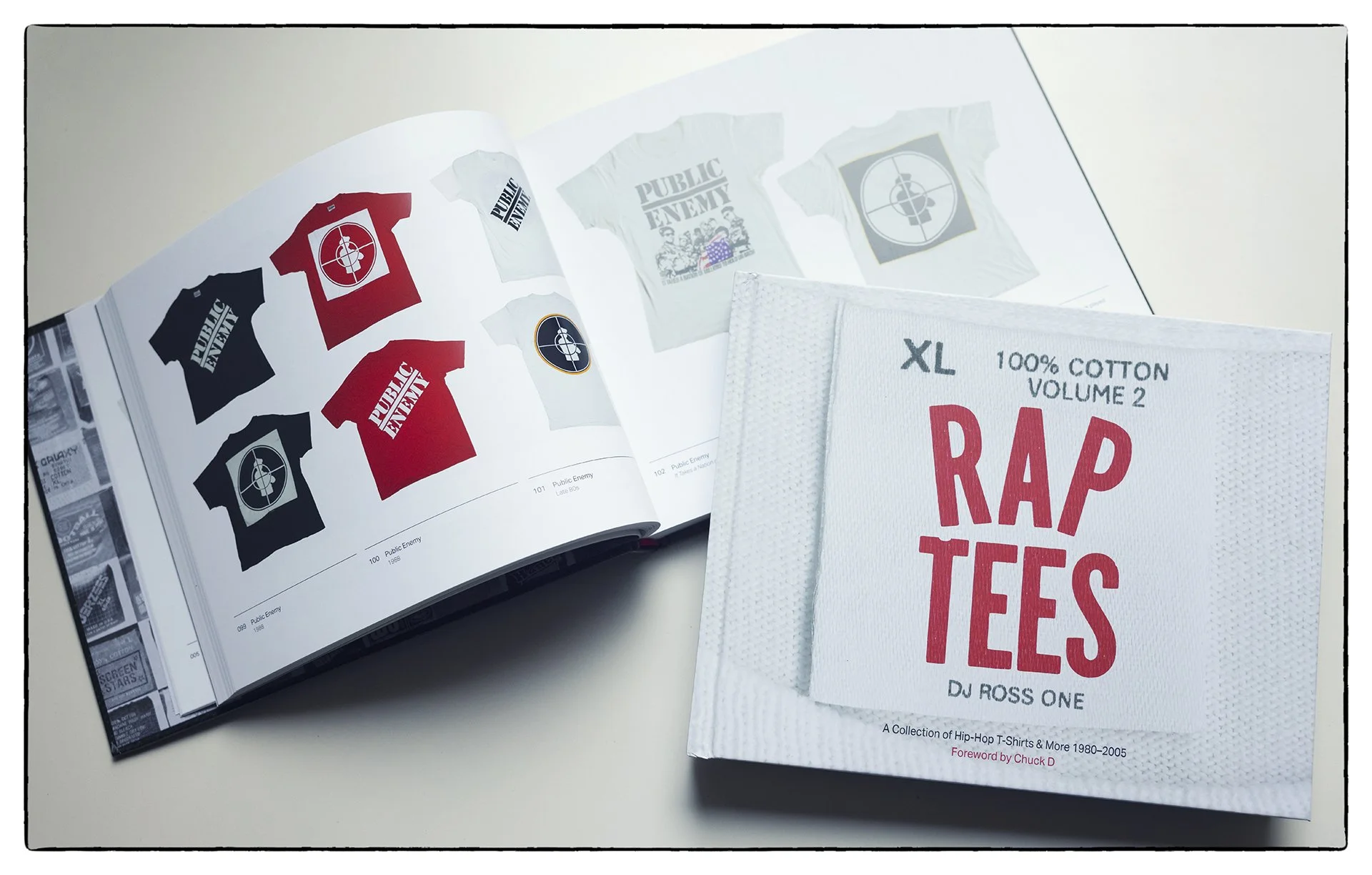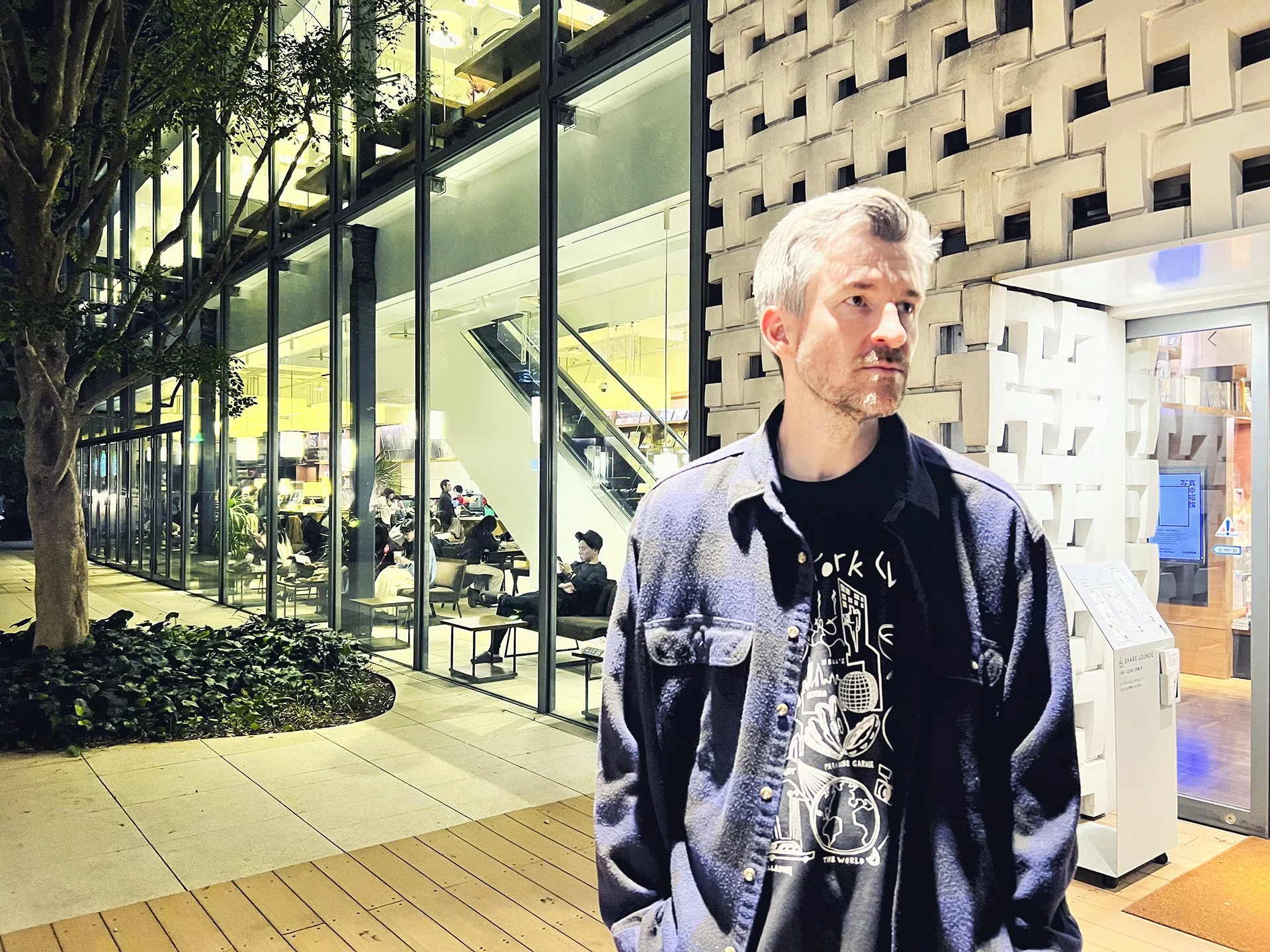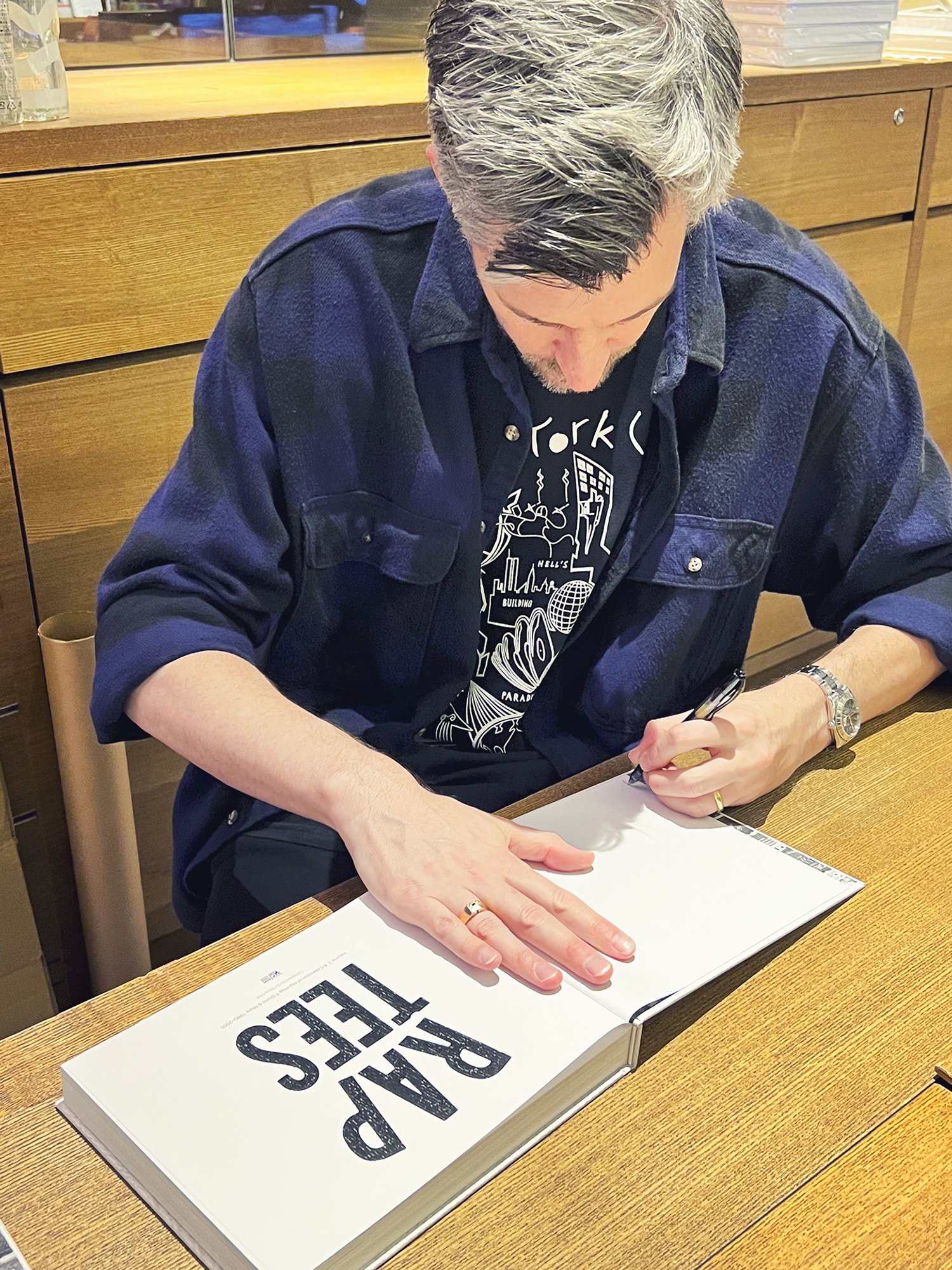
Global Beats and Collector's Feats: DJ Ross One's Musical Odyssey and Hip-Hop Treasures
Interview & Photo: Atsuko Tanaka
Currently based in Los Angels, the globally acclaimed DJ Ross One continues his journey across the world, disseminating his musical influence. Renowned not only for his DJ skills but also as a collector of hip-hop memorabilia, such as vintage rap T-shirts and radio cassette players, Ross One made waves in 2015 with the publication of his first photo book, "Rap Tees: A Collection of Hip-Hop T-Shirts 1980-1999". After 8 years, the much-awaited Volume 2 was unveiled this fall. We caught up with Ross One during his visit to Japan for the exhibition and book signing, delving into his life and the stories behind his remarkable books.
-Please tell me about your childhood. What kind of environment did you grow up in?
I grew up in suburban Cincinnati Ohio. Limited access to hip-hop and zero access to DJing, but my parents always had great taste in music and were happy to let me explore any creative endeavor I wanted to try.
-When did you start listening to hip-hop? What was the first hip-hop song that made you a big impression?
I started listening to hip-hop when I was 10 or 11 years old. Two of the first groups that made a real impression on me were Public Enemy and Digital Underground. I think because I was still a kid, rappers like Flavor Flav and Humpty Hump really appealed to me. They got my attention, but then I became huge fans of the music.
-How did you get into DJing?
My only access to DJs was on TV and in magazines. Like many kids my age, the movie “Juice” was the first film that really made me interested in DJing, and made me want to get turntables and a mixer.
-Then what actions did you take to become a DJ?
I was a bedroom DJ all through high school. Mostly looking for records and learning how to DJ. In college I started DJing some house parties and small bars. It was not a lot of money though. Just enough to buy a few more records.
-You have experienced working at the record store, right? What was your experience like?
I worked at record stores all through college in Rochester, NY. Sometimes I would work just to be paid in vinyl. It’s how I built my record collection and learned so much about all different types of music, labels, and artists. I loved working in the record shop and always feel at home in a good record shop.
-You studied photography in university. Why did you choose photography?
I’ve always been into photography, since I was a kid. I ended up in Rochester because at the time, the best photo school (Rochester Institute of Technology) in the country was there. I’ve worked for some great photographers and ended up getting a Master’s degree in photo.
-Wow, I didn’t know that!
DJing was a way to make some money on the side, so I could spend my days walking around shooting photos. After I moved to NYC for grad school, I started DJing at more clubs and lounges.
-I’d like to ask about your promo video on your YouTube, “Keep it moving’. Is it reflective of your real experiences? Did you face challenges in establishing a stable career?
It’s not really a struggle, it just took many years of practice and working until I was able to headline bigger clubs. “Keep it Moving” was more about trying to fit in to the DJ world at that time. All of the stuff that doesn’t involve playing records. I’ve never been good at the “showmanship” element of DJing.
-What was the turning point that helped you make a name for yourself?
I got an offer to move to Miami to DJ full time at some very popular clubs like Mansion, Prive, Mokai. When I made that move I got more name recognition and was able to travel more.
-You have DJed in many different countries. Do you have any favorite cities or places to DJ?
I love Japan of course. Tokyo, Kyoto. I’ve been lucky to DJ all over the world, but some of the best nights were in NYC and Miami, which were my homes at the time.
-Do you have any advice for aspiring DJs on what steps they should take to become successful, like yourself?
It’s a much different world for an up and coming DJ now, but I always suggest going out a LOT. Go listen to a lot of DJs and see what works and what doesn’t, and find ways to emulate that energy in your own style.

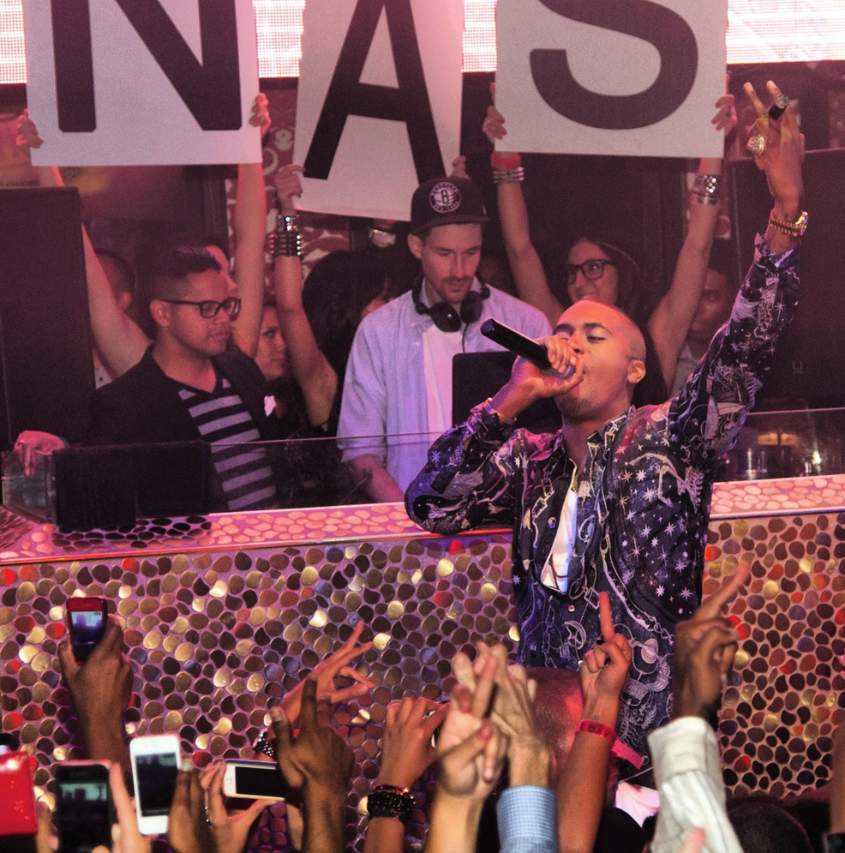

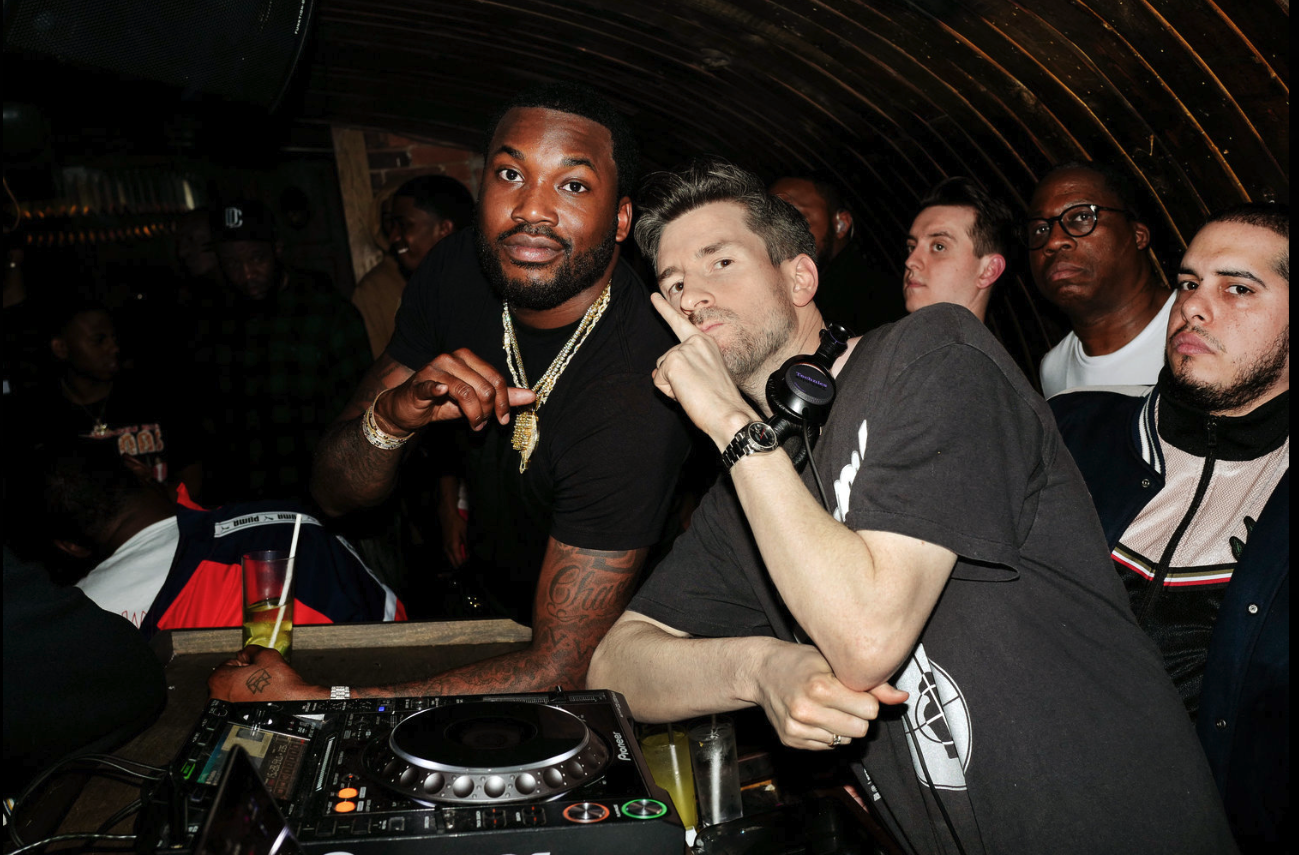
-I wanna ask you about your book, “Rap Tees”. How and when did you come up with idea of making the book?
My T-shirt collection was getting so big that I had to do something. It started as just a documentation of my collection, but it quickly grew to include other collectors.
-It seems there are tremendous work to do. What was the hard part and fun part in the process of making the book?
It’s a lot of work and takes a lot of time. It can only be a passion project because of the time it takes, but seeing people’s collections is always fun. Also tracking down tough shirts, and seeing the response from hip-hop fans and collectors.
-I know it’s hard to choose, but if you pick the most memorable tee or have the most meaning to you, what would it be?
Impossible to pick! I’ve thought about it a lot and it changes all the time.
-What do you find most appealing about rap T-shirts?
They are very special items. Some are so impossibly rare, most were trashed or lost over time. Often with the rarest hip-hop T-shirts, it can feel like there are less than 5 left in the world.
-Why do you think people are drawn to collecting items?
Often it’s something a person wanted in childhood but didn’t have access to. For some people it’s about money and investment. I always prefer collectors who are just real fans and want to represent by wearing their favorite artists – the whole reason music T-shirt existed in the first place.
-That’s true. How many tees do you have now? Are you gonna continue to buy them?
I haven’t counted my shirts, but it’s a lot. I still pick up things to fill holes in my collection. The collector bug never goes away.

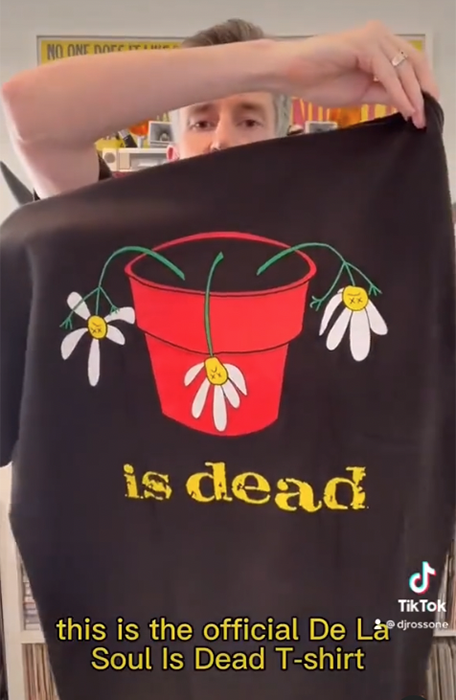
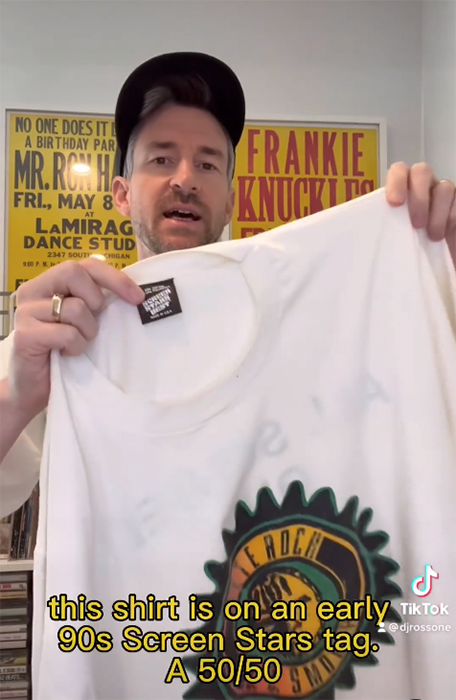
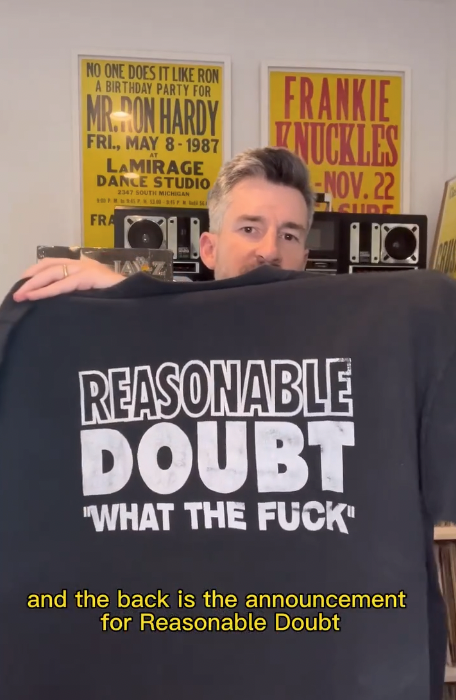
-Are there any new projects you’re working on now?
I have some other book projects that could take months or years, or many years!
-What kind of music do you listen a lot these days? Any favorite artists or songs?
I mostly listen to the same rock music I always listen to. Oasis, Smiths, The Cure. Stuff like that. And lately a lot of Rakim. But I keep up with the new stuff every day also.
-What do you think about the change of the scene in hip-hop these years?
Everything changes. It’s hard to really know what to think until you look back after a few years pass.
-How would you describe your DJ style in one word?
Consistent.
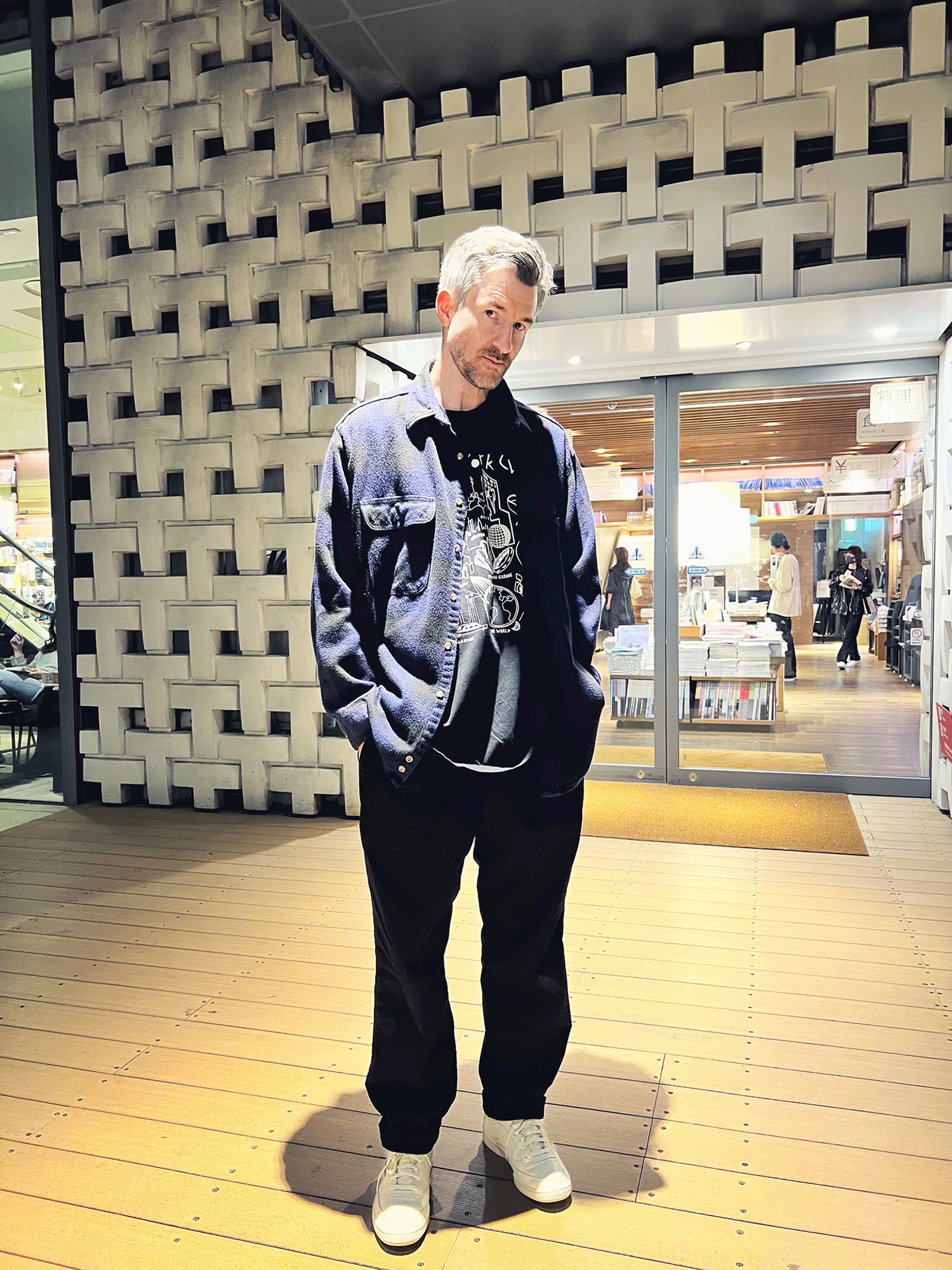
-Any DJs you respect or admire?
Lots! Many of my friends like Eli Escobar, Crooked, Moma. Also Riz and Kid Capri.
-Any thoughts about what is happening in the world now?
It ain’t pretty out there.
-How do you see yourself in the future? Do you have any goals you wanna accomplish or plans?
I just keep grinding and try to be ready when new doors open. Hopefully more books though.
-Lastly, what does hip-hop mean to you?
It probably informs just about everything I do in life, in one way or another. I certainly owe my career to hip hop. I do my best to respect and preserve the history of Hip Hop and DJing.
